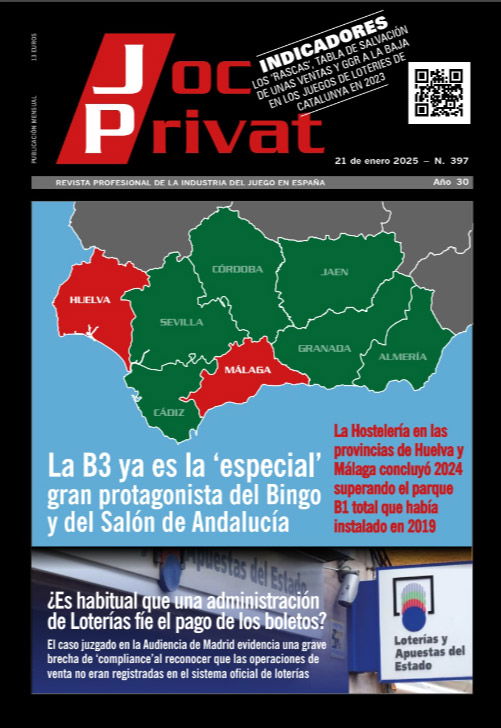Choosing the right iGaming jurisdiction: Key factors to consider

Ron Mendelson is the Director of Costa-Rica based International Business & Corporate Services consultancy firm, Fast Offshore. With over 24 years of real-world experience in iGaming Licensing and Payments, Regulatory Compliance, Tax-Efficient Corporate Structuring, Incubator and other Hedge Fund Licenses, Blockchain and Cryptocurrency related services, he advises a number of international clients on their business needs in the Americas, Europe, and beyond.
Choosing the right jurisdiction for your iGaming operation is crucial for ensuring regulatory compliance, market access, operational efficiency, and overall business success. This decision involves evaluating various factors, including costs, application complexity, ongoing requirements, jurisdictional reputation, and technological openness. Here is a comprehensive guide to help you navigate these considerations.
Cost of license application and renewal
Financial implications are a primary consideration when selecting an iGaming jurisdiction, as the cost of obtaining and renewing a license can vary significantly. Initial application fees might range from a few thousand to several tens of thousands of dollars. Renewal fees can also vary, often being a percentage of the revenue or a fixed annual fee.
Key points:
-
Initial Application Fees: Vary widely based on the jurisdiction.
-
Renewal Fees: Can be fixed or revenue-based, affecting long-term financial planning.
Complexity of the application process
The complexity and duration of the application process are important factors. Some jurisdictions have a rigorous and detailed process requiring extensive documentation, business plans, financial forecasts, and comprehensive due diligence. Others offer a more streamlined process with fewer requirements.
Key points:
-
Documentation: Detailed business plans, financial forecasts, and operational plans may be required.
-
Corporate Requirements: A local company, other corporate structures, and fiscal planning.
-
Compliance: The drafting of various policies and processes, appointment of key staff, adherence to regulations, and ongoing monitoring.
-
Due Diligence: Thorough background checks on key personnel and corporate structure.
-
Timeframe: Application processes can range from a few days to over a year.
Ongoing annual requirements
Maintaining compliance post-licensing involves meeting various ongoing requirements such as regular reporting, audits, and adhering to operational standards.
Key points:
-
Reporting: Regular submission of financial and operational reports.
-
Audits: Annual or bi-annual audits.
-
Compliance: Adherence to anti-money laundering (AML) and Know Your Customer (KYC) regulations, as well as jurisdiction-specific licensing requirements.
Corporate requirements and due diligence
Jurisdictions often require a substantial corporate presence within their borders. This can include having local directors, a physical office, and employing local staff. Additionally, extensive due diligence is conducted on the company’s directors and major shareholders to ensure integrity and financial stability.
Key points:
-
Local Presence: Requirements for local offices and personnel.
-
Due Diligence: Background checks on directors and major shareholders.
Know Your Customer (KYC)
KYC processes are essential for preventing fraud and ensuring player protection. Jurisdictions vary in their KYC requirements, but most demand robust identity verification and monitoring systems.
Key points:
-
Identity Verification: Ensuring the identity of players through documentation.
-
Monitoring: Continuous monitoring of transactions for suspicious activity.
Reputation of the jurisdiction
The reputation of the jurisdiction plays a significant role in how your business is perceived. A well-regarded jurisdiction can enhance your company’s credibility and trustworthiness among players, partners, and financial institutions.
Key points:
-
Credibility: The jurisdiction's standing in the iGaming industry.
-
Market Trust: How players and partners perceive the jurisdiction.
Recognition by banks and payment providers
The license's acceptability by banks and payment processors is critical for smooth financial operations. Some jurisdictions are widely recognized and accepted, while others may face skepticism, making financial transactions more challenging.
Key points:
-
Banking Relationships: Ease of opening and maintaining bank accounts.
-
Payment Processors: Acceptance by major payment gateways.
Commitment to responsible and fair gaming
Ensuring responsible and fair gaming practices is essential for maintaining a sustainable and ethical operation. Jurisdictions vary in their commitment to these principles, with some having stringent measures and dedicated programs for player protection and fair play.
Key points:
-
Player Protection: Measures to prevent addiction and protect vulnerable players.
-
Fair Play: Ensuring game fairness and transparency through the use of a random number generator or provably fair algorithm.
Application processing time
The time taken to process an application can affect your business launch plans. Jurisdictions with streamlined processes and efficient regulators can expedite the launch, while others with rigorous checks may take longer.
Key points:
-
Efficiency: Speed and efficiency of the regulatory body.
-
Planning: Aligning business timelines with regulatory timelines.
Market access
Different jurisdictions provide varying levels of market access. Some licenses offer access to larger international markets, while others may be limited to specific regions.
Key points:
-
International Reach: Ability to operate in multiple countries.
-
Regional Restrictions: Market limitations based on the jurisdiction.
Regulatory environment
A supportive and forward-thinking regulatory environment can significantly impact your operations. Authorities that are welcoming, flexible, and technologically savvy can provide a conducive environment for innovation and growth.
Key points:
-
Regulatory Support: Cooperation and support from regulators.
-
Flexibility: Adaptability to changing business needs and technological advancements.
Crypto gambling and blockchain technology
The acceptance of cryptocurrencies and blockchain technology is a growing consideration in the iGaming industry. Some jurisdictions are more open to these innovations, providing frameworks for crypto gambling and blockchain integration.
Key points:
-
Crypto Acceptance: Legal and regulatory support for cryptocurrency transactions.
-
Blockchain Integration: Use of blockchain for transparency and security.
Openness to AI, Web3, Web4, and disruptive technologies
As technology evolves, jurisdictions that embrace AI, Web3, Web4, and other disruptive technologies can offer competitive advantages. This openness can facilitate innovation and future-proof your business.
Key points:
-
Technological Openness: Support for advanced technologies and innovation.
-
Future-Proofing: Ability to adapt to technological advancements.
Future ghanges to iGaming laws
Staying informed about potential legal changes is crucial for long-term planning. Jurisdictions with dynamic regulatory frameworks that evolve with industry trends can offer more stability and predictability. On the other hand, big changes could spell trouble for operators so it is crucial to keep your finger on the pulse.
Key points:
-
Regulatory Evolution: Frequency and nature of regulatory updates.
-
Stability: Predictability and transparency of the regulatory environment.
Legal framework and operational scope
Ensuring that the legal framework aligns with your business model is fundamental. Jurisdictions with comprehensive and clear legal structures can provide a solid foundation for diverse iGaming operations.
Key points:
-
Alignment: Compatibility of the legal framework with your business model.
-
Comprehensiveness: Clarity and thoroughness of legal regulations.
Conclusion
Choosing the right iGaming jurisdiction requires a thorough evaluation of various factors including costs, application complexity, ongoing requirements, jurisdictional reputation, and openness to technological innovations. By carefully considering these aspects, you can select a jurisdiction that not only meets regulatory requirements but also supports your business’s growth and operational efficiency. This strategic decision is crucial for ensuring compliance, market access, and long-term success in the dynamic iGaming industry.
Partnering with Fast Offshore for your iGaming licensing needs ensures a seamless application process and comprehensive ongoing maintenance. With over two decades (and counting) of expertise, Fast Offshore offers tailored solutions, handling complex regulatory requirements efficiently. Choose Fast Offshore for reliable, professional service that keeps your iGaming operations compliant and ahead of industry changes.



















































